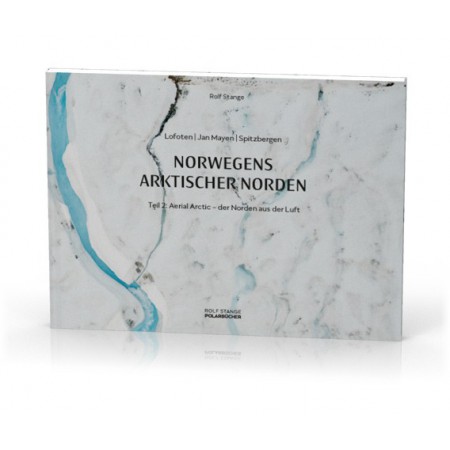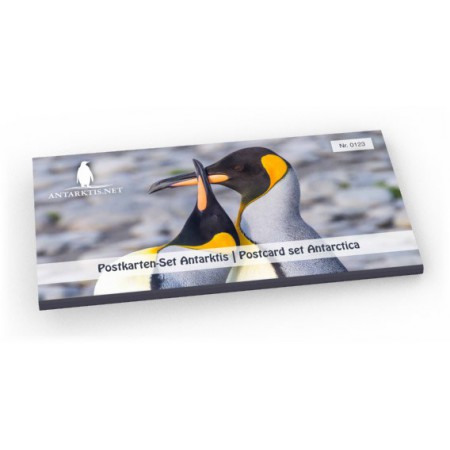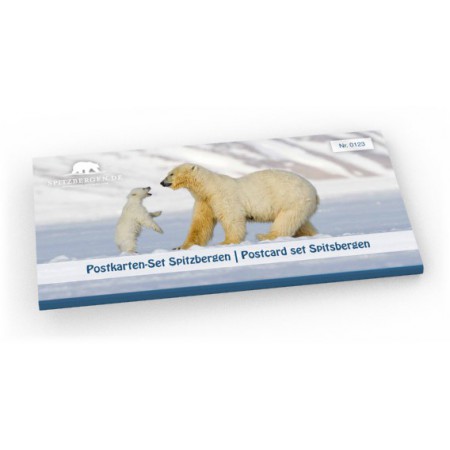Spitsbergen – Svalbard. The complete guidebook
The new, updated 2025 edition, reflecting amongst others recent regulation changes, is now available! 🤩
Natural and human history - Routes and regions - Useful and important information
Sixth updated edition (2025) of the english guidebook Spitsbergen-Svalbard.
An ebook version is available on Apple Books (click here).
Occasionally, reduced copies with minor cosmetical damage (something like dented cover edge) are available. Click here to check availability of reduced copies.
Comprehensive guidebook about Spitsbergen. Background (wildlife, plants, geology, history etc.), practical information including travelling seasons, how to travel, description of settlements, routes and regions.
This new edition has got 624 pages and all chapters have got a lot of updates and new information.Updates include the new regulations relevant for tourism in Svalbard from 2025. Most maps have been updated and improved.

Natural and human history - Routes and regions - Useful and important information
This new edition (the 6th, from May 2025) has got 624 pages. All chapters have got a lot of updates and new information. Maps have been updated.
This book does not only cover comprehensive information concerning all fields of possible interest, but is at the same time a photo book containing many colour images to illustrate many wildlife and flower species and to document landscapes and places from all over the archipelago.
»Spitsbergen – Svalbard« has detailed information about the flora and fauna of Spitsbergen, its nature and human history and detailed chapters about all regions, fjords, islands and settlements. 14 mammal species, 27 bird species and 29 flower species are described in detail and illustrated with colour photographs. Many sketch maps within the text provide geographical orientation. Furthermore, this books will answer questions concerning practical issues, how to travel in Spitsbergen, which seasons are good, relevant legislation, hazards out in the field and more.
Popular routes (hiking, snow mobile tours, cruises) are described in detail.
»Spitsbergen – Svalbard« has approximately 608 pages (A5, paperback) including more than 260 colour photographs to document the biological and geographical diversity of Spitsbergen.
Table of contents (abbreviated)
Foreword
1. Preface
2. Introduction
3. Travelling in Svalbard: Useful, practical and important information
3.1 Seasons
3.2 How to travel
3.3 Tour operators
3.4 Clothing, hygiene & the environment, photography
3.5 Getting to Spitsbergen
3.6 Conservation, cultural heritage, protected areas, safety
3.7 Longyearbyen
3.7.7 From coal to space research: Longyearbyen through 100 years
4. Natural history
4.1 Geology
4.2 Geography, glaciers, permafrost
4.3 Oceanic currents
4.4 Sea ice
4.5 Driftwood, plastic pollution and environmental toxins
4.6 Climate and weather
4.7 Mammals
4.8 Birds
4.9 Plants
5. History
5.1 Vikings
5.2 Pomors
5.3 Willem Barentsz
5.4 Whaling in the 17th century
5.5 Early expeditions and science
5.6 Attempts to fly to the Pole: Virgohamna and Ny-Ålesund
5.7 Trappers
5.8 Whaling in the early 20th century
5.9 The Spitsbergen Treaty
5.10 Mining 5.11 The Second World War
5.12 Spitsbergen after the war
6. Fjords and islands, settlements and stations: The regions of Svalbard
6.1 Isfjord
6.2 Forlandsund east side
6.3 Prins Karls Forland
6.4 Kongsfjord
6.5 Krossfjord
6.6 The northern west coast
6.7 Northwestern Spitsbergen
6.8 Raudfjord
6.9 The Woodfjord area
6.10 Moffen
6.11 Wijdefjord
6.12 Ny-Friesland, Verlegenhuken
6.13 Sorgfjord
6.14 Hinlopenstretet
6.15 Nordaustland
6.16 Storøya, Kvitøya
6.17 Kong Karls Land
6.18 Spitsbergen's east coast, Storfjord
6.19 Barentsøya
6.20 Edgeøya
6.21 Tusenøyane, Halvmåneøya, Ryke Yseøyane
6.22 Hopen
6.23 Bjørnøya
6.24 Sørkapp Land
6.25 Hornsund
6.26 Hyttevika, Dunøyane, Isøyane, Kapp Borthen
6.27 Bellsund
7. Arctic environmental problems
Reference 978-3-937903-53-8 – Weight 0.76 kg – Dimensions: 14.80 x 21.10 cm
608
Pages
Paperback
binding
Many
Maps
267
Colour photos
English
Language
Specific References
ISBN
978-3-937903-27-9
EAN13
9783937903279
A must have for a travel to Spitsbergen
Even if you're not lucky enough to go on an expedition to Spitsbergen, this book will take you on a journey through beautiful images of Artic flora and fauna, accompanied by precise descriptions. I highly recommend this travel guide.
Excellent guidebook
Of all the guidebooks on Spitsbergen that I read before going there, this one is -by far- the most comprehensive. Especially useful were the detailed descriptions of the most common boat- hiking- and snowmobiling trips. Furthermore, the elaborate descriptions of the landscapes, history and geology of the different parts of Spitsbergen really helped to make my trip to Spitsbergen an even more enjoyable experience.
Excellent guidebook
Of all the guidebooks on Spitsbergen that I read before going there, this one is -by far- the most comprehensive. Especially useful were the detailed descriptions of the most common boat- hiking- and snowmobiling trips. Furthermore, the elaborate descriptions of the landscapes, history and geology of the different parts of Spitsbergen really helped to make my trip to Spitsbergen an even more enjoyable experience.
Outstanding
This book really covers all the bases for you to fully appreciate the archipelago, very comprehensive and nicely written. Rolf Stange has put a lot of effort into creating this guidebook, thanks for the hard work to make life easy for a polar guide such as me! 100% worth having shipped across the Atlantic.
The Bible!
If you only have room for one book onboard, it has to be "Spitzbergergen": tested and fully approved by a team of four people, two Norwegians and two French, that has been sailing for 6 weeks this summer (2023), from Tromsø to Svalbard, up to Rossøya and back through Hinlopen Strait! A gold mine, to which you come back every day, and read several times every chapter, so helpful and interesting!
Top notch
No doubts one of the, if not THE, most complete and interesting guidebooks I've ever read about a specific area/region of the world. Must have/read for planning a trip to Spitsbergen.
Independently and carefully researched reference - a must have b
Useful, comprehensive and pertinent information, a must read for anyone considering or returning to the Spitsbergen Svalbard region. Outlining history, wildlife, flora, geography written by a polar expedition leader, geologist and photographer residing in the high Arctic.

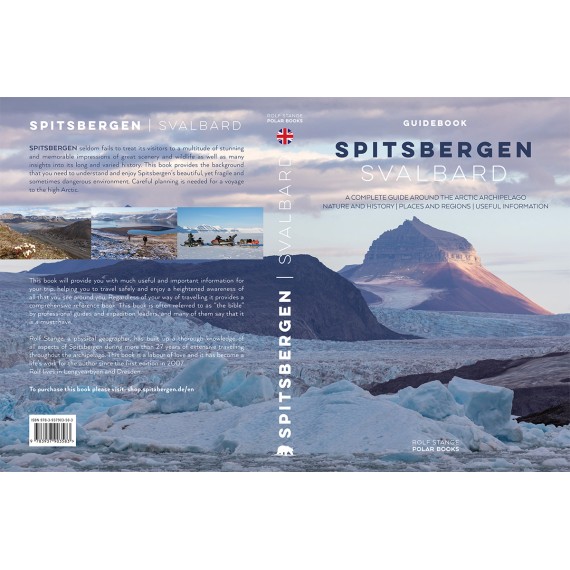























 Language: German
Language: German
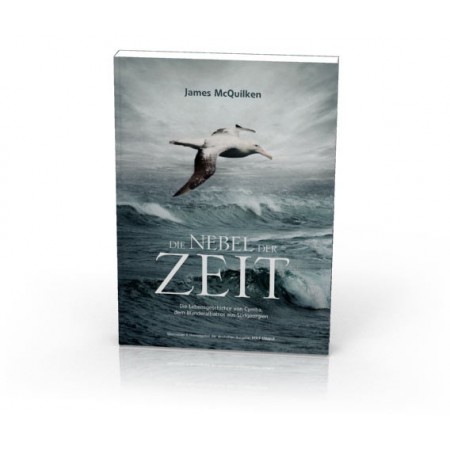



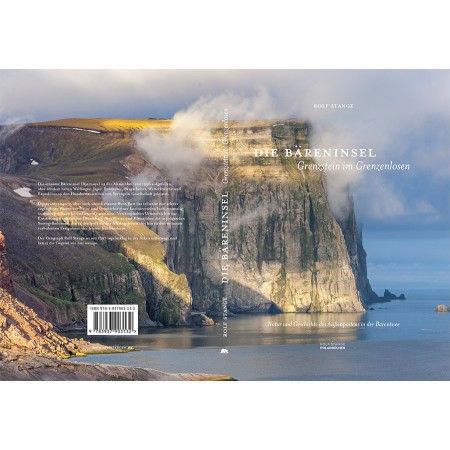

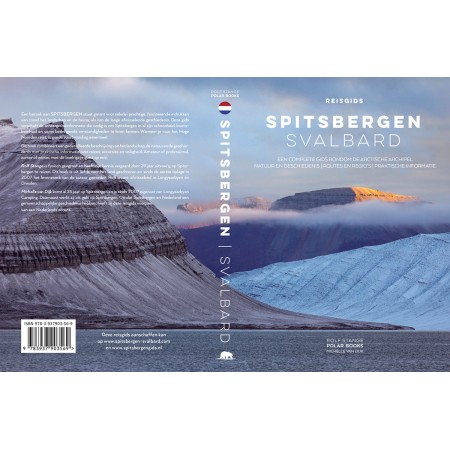
 Language: dutch
Language: dutch